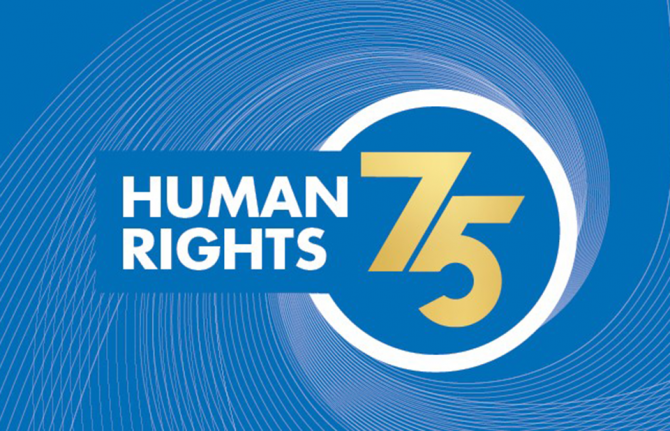

Press Statement
To protect everyone’s health, protect everyone’s rights
10 December 2023 10 December 2023UNAIDS statement on the 75th anniversary of the Universal Declaration of Human Rights
On the 75th anniversary of the Universal Declaration of Human Rights, UNAIDS emphasizes that the upholding of everyone’s human rights is the essential underpinning of an effective HIV response.
UNAIDS reaffirms its commitment to keep human rights at the centre of its approach to ending the AIDS pandemic.
UNAIDS calls on all governments to uphold human rights, including by removing laws which harm people’s rights and by bringing in laws which uphold the rights of every person, including people in marginalized communities.
With human rights at the centre, with communities in the lead, the world can end AIDS as a public health threat by 2030, a goal agreed to by world leaders in 2015. While the world has made great progress towards this goal, this progress has not been enjoyed by everyone. The end of AIDS is a goal that can only be achieved through ensuring everyone’s human rights.
It is more important now, than ever, that the world works in a coordinated, sustained, and effective manner to achieve human rights for all. The gains made in human rights in the last 75 years will be lost if leaders do not stand up to the global anti-rights movement. Attacks on women’s rights, the rights of LGBTQ people, sexual and reproductive health and rights, on democracy and on civic space are not only a threat to everyone’s freedom, they are a threat to everyone’s health.
To help protect the gains made on human rights in the last 75 years, and to keep the world on the path to end AIDS by 2030, UNAIDS pledges:
- To scale up its work with countries and communities to help remove discriminatory laws that prevent people from enjoying their right to health;
- To expand its work to end inequalities in the HIV response by working further to reduce all forms of HIV-related stigma and discrimination;
- To be a strong advocate for the protection and promotion of the human rights of the world’s most marginalized people and to counter the global anti-rights movement;
- To work towards ending all forms of gender-based violence, one of the most persistent and egregious of human rights violations;
- To support the leadership of people living with or affected by HIV – including adolescents, young people and women in all their diversity, gay men and other men who have sex with men, transgender people, sex workers, and people who use drugs – to meaningfully participate in the HIV response and decisions that affect their lives.
The path that ends AIDS is a rights path. To protect everyone’s health, protect everyone’s human rights.
UNAIDS
The Joint United Nations Programme on HIV/AIDS (UNAIDS) leads and inspires the world to achieve its shared vision of zero new HIV infections, zero discrimination and zero AIDS-related deaths. UNAIDS unites the efforts of 11 UN organizations—UNHCR, UNICEF, WFP, UNDP, UNFPA, UNODC, UN Women, ILO, UNESCO, WHO and the World Bank—and works closely with global and national partners towards ending the AIDS epidemic by 2030 as part of the Sustainable Development Goals. Learn more at unaids.org and connect with us on Facebook, Twitter, Instagram and YouTube.
